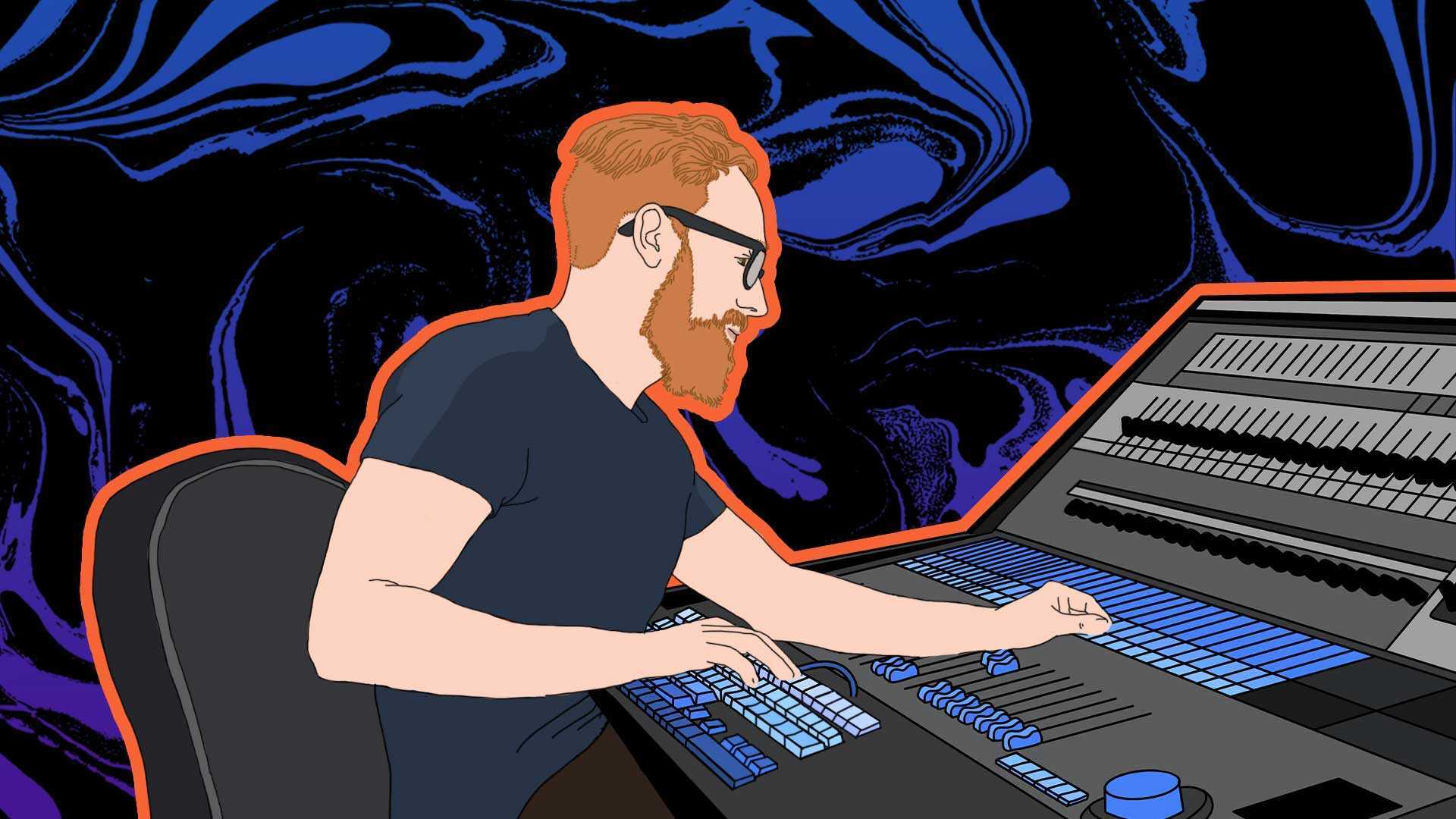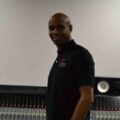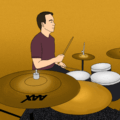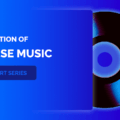Even after 20 years of experience, Ghislain Brind’Amour enters Montreal’s Planet Studio every morning with a clear goal: to continue touching people with his music. The innovative engineer and producer always wants everything to be incredible. This approach has won him several coveted awards, including a JUNO for Wesli‘s album Rapadou Kreyol and the Anglophone Album of the Year award for Naya Ali’s Godspeed: Elevated at the ADISQ awards in 2022. Today, the man who calls himself Mixed By Gee shares with us the story of how he came to work in one of Montreal’s biggest studios.
RAC: Can you tell us about the journey that brought you to Planet Studio?
Mixed By Gee: As a teenager, I started creating hip-hop beats. A rapper friend and I put together a song for a school project, and it was a big hit. We even sold CDs. He had other material, so we made an album. After 2,000 CDs sold, a tour, and a collaboration with CBC/Radio-Canada on a project about addiction, my friend went off to university. I wanted to keep performing solo, but I realized I would rather be in the studio creating. I found the RAC program in Montreal, so I moved here from Ottawa. RAC gave me a few jobs here and there, and then the school’s director at the time called to tell me that Planet Studio was looking for an assistant. I started working as an assistant, but eventually you have to make money. So I went on music forums to advertise that I had a studio available in the evenings – that was my reward as an assistant. I then spent all my time at the studio, even sleeping there. It gave me a lot of experience.
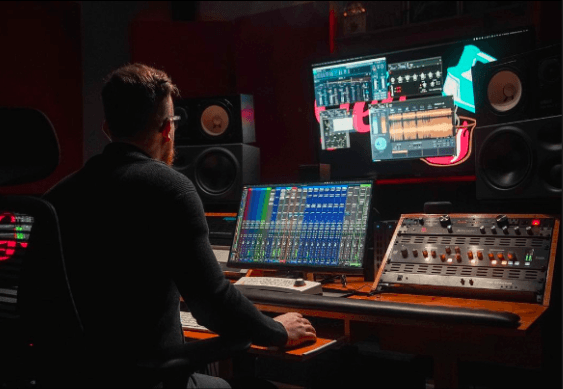
RAC: What struck you the most during your three years as an assistant about the way your mentors worked?
Mixed By Gee: I didn’t want to be an assistant. Sometimes I thought I could do a better job than the engineer at the console. But the truth comes out pretty quickly when you start: there’s a reason why that guy is there. I’ve learned that if you create a bad vibe, you’ll never get any work done. Yes, there’s technique, but it’s also how you make the artist feel during the session. I wouldn’t have understood that on my own. You spend hours with the artist in the studio, and it has to be enjoyable. They bare their souls and are vulnerable to us. So our role is to help them feel at ease and perform. The guys in the big studios are more than just good at using Pro Tools: they’re there because people want them to be there.
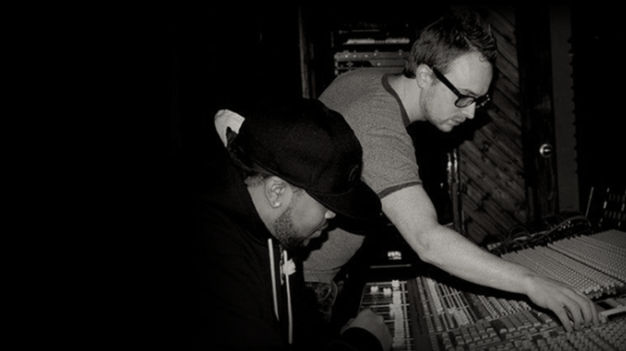
RAC: Which artists have you most enjoyed working with?
Mixed By Gee: There isn’t necessarily one person in particular. It’s more about the times I’ve grown in my work. I remember when I started out, in 2005, I worked with Corneille on a re-release of one of his first albums and also did production work for the artist Gage‘s album. The sessions were really cool, and even though Corneille has a lot of experience, he never questioned me. He trusted me, so I made sure I contributed to the project. We spent hours in the studio and he let me do lots of things. I wanted to express what was in my head and he gave me the opportunity to do that. Corneille became a mentor on the production side. The way he worked and did things was incredible. He could hear one take, then another with a different melody or in a different section, and could imagine the two elements together, or know where to place them to make it sound right. He opened my mind: there are no wrong notes, it’s just a question of putting them in the right place.
RAC: You offer a Pro Tools template on your website, can you tell us more about it?
Mixed By Gee: I kept getting asked about it, and I myself would have liked to have had a Pro Tools base when I started out. So I re-imagined the way I work and made a template with only the tools available in Pro Tools. It’s a great exercise. And the results are good, because I’ve worked and handed over projects to clients using this template. In general, I always work with a layout and routing similar to what I created. I’m currently developing one for Logic Pro and plan to do the same for quite a few audio software programs.
RAC: How is it possible to succeed today as a producer in big studios?
Mixed By Gee: There are always opportunities to succeed, and I often see new faces come through the studio. But the economic reality isn’t the same today: I was lucky enough to be able to pay $300 rent, which was easier to cover with odd jobs. When you start out, there’s not much money, so it’s a challenge. It’s easier if you’re still living with your parents, like one of my assistants. It allows him to have the right attitude: first in, last out. Don’t just think about money, it’s more about the long-term vision that allows you to evolve and create opportunities for which you’ll be better rewarded later on.
That’s what changed my career. When I started out, I did everything from live to pop, jazz, gospel, and rap sessions. I wasn’t great at anything, but I was decent at a lot of things. I wanted to mix, but people had to trust me. I relied on my strengths and, during the sessions, I concentrated on working on vocals, melodies, back vocals, and harmonies. Instead of sending the rough mix, I would stay in the studio for hours to get it right. The artists would be happy with the session and the result, then send it to an engineer to mix. But it didn’t sound as good as my “rough mix”, so they asked me to finish the project with them. It’s important that a client doesn’t leave my studio with something that doesn’t sound right.
RAC: As a 2002 RAC grad, what do you still hold onto and use today?
Mixed By Gee: The acoustics courses are still very useful to me when I’m building studios (read our article on Studio Building 101: Acoustics). I still look at my notes for that. I remember freezing during one of the first practical exams. The professor said “relax, you know all this” and taught me not to get too in my head. He was right: you have to follow your instincts in music. Let’s face it, the thing I hated the most is the thing that has served me the most. RAC is a good start, but I think everything starts afterwards, when you have to put it into practice.
RAC: What advice would you give to a student who’s graduating?
Mixed By Gee: It depends, but if it’s to have a career like mine: with a laptop, you can do anything. For me, approaching the big studios has served me well, but it’s not necessarily for everyone, since it’s time-consuming. You can also find an artist you believe in and build something together. If you do good work, you’ll get hired. Freelancing works well too – video games and post-production are in demand. Financially, life will be easier in those fields. It’s a choice.
– Final Notes –
Mixed By Gee recently started being more active on social media. His goal: to raise industry standards in Montreal. Videos on EQ techniques on a bass drum aren’t for him, he’s more interested in opening the door to the studio experience, which is so precious in his eyes. He sees the Montreal scene on the same level as any other major city in the industry. As he seeks to pass on this vision to the next generation, he is also currently working on a country project with Michaela and an upcoming EP for Ya Cetidon. The friendly producer continues to hope that others will take their place behind the console, never forgetting their role in the music creation chain. Ultimately, “it’s all about the music”!
Written by Caroline Boivin
Translated by Maryse Bernard
Illustration by Yihong Guo
